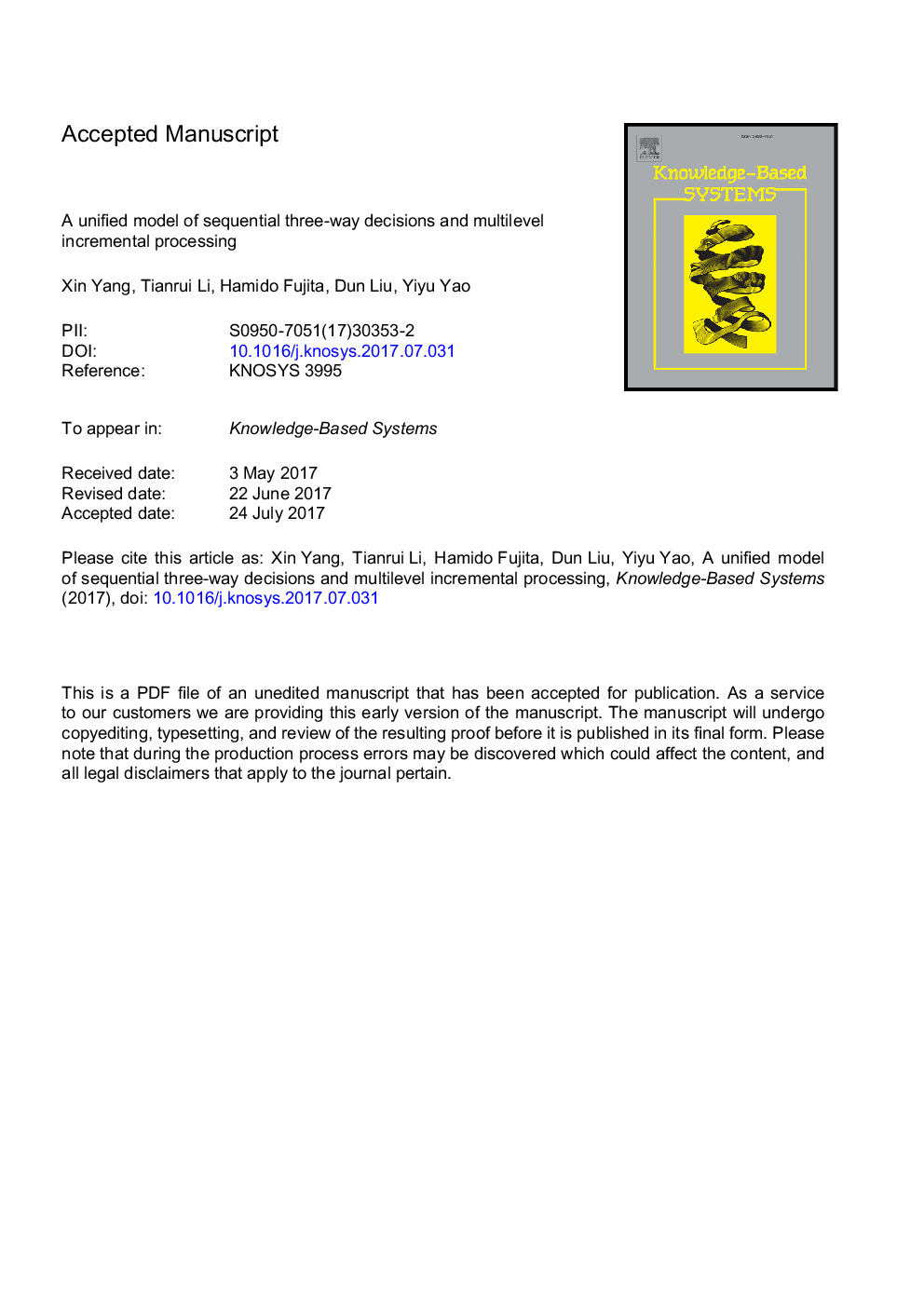| Article ID | Journal | Published Year | Pages | File Type |
|---|---|---|---|---|
| 4946074 | Knowledge-Based Systems | 2017 | 27 Pages |
Abstract
A fundamental notion of granular computing is a multilevel granular structure in which different levels are characterized by different degrees of abstraction and details. By making use of a granular structure, we propose a unified model of sequential three-way decisions and multilevel incremental processing for complex problem solving. At a particular level, a set of objects is divided into positive, negative, and boundary regions. A yes/no decision is made for objects in the positive/negative region when available information is sufficient to warrant such a decision. We defer a definite decision for objects in the boundary region to the next level where more detailed information is given. In this way, we have an effective and efficient sequential three-way decisions strategy to achieve a faster decision process with a less overall decision cost. We consider, at each level, seven situations resulting from combinations of three regions. We introduce the cost of decision process for granularity transformation and processing. We also examine the decrease of objects and the change of thresholds when the attributes are added to an information system. In order to dynamically update a sequence of three regions, we suggest multilevel incremental mechanisms and algorithms. Finally, we report experimental results on datasets from UCI to show the performance of proposed models and algorithms.
Related Topics
Physical Sciences and Engineering
Computer Science
Artificial Intelligence
Authors
Xin Yang, Tianrui Li, Hamido Fujita, Dun Liu, Yiyu Yao,
